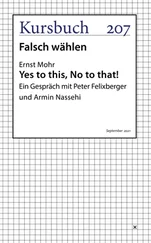“I haven’t had any trouble breathing in here,” Kat says.
“Good to know,” he says.
“Let me give you a tour,” she says.
They walk down the apartment’s main hall, stopping first in the living room, then the kitchen and bathroom, which should have gotten a thorough cleaning earlier before the girl with the black eye, her baby, and Tyler distracted Kat from getting the house in order.
The two bedrooms are in the back and Kathleen decides not to show him hers, goes into the place where he’ll be laying down his head, assuming the pounds per square inch of oxygen pass his inspection.
They arrive at the room. The door is closed. She should have opened it, made the room more inviting. Maybe some flowers. Daisies. Yeah, a vase of daisies to bring some cheer. No one wants to live in a hovel. It feels like the whole city has a pall over it because of the brass band. She could have thrown open the blinds and cranked up the window, even if she has to hear all the kids from the playground. Even if that makes her think of Rodney. Even if she’s one of the worst people alive.
It’s a small room. Ten by twelve. Walls painted maroon, except for the closet door, which is white. There’s a futon in the far corner and an armoire next to it. A poster of Bob Marley smoking a joint. The roommate’s stuff is pretty nice, or so Kat thinks. She wonders how it must look to a scientist.
“How’s the oxygen level?” Deb asks from the doorway.
Wes takes a deep breath, says, “Optimal.”
Kathleen laughs again, harder this time.
“Do you have any questions for us?” Deb says.
“Not at this time. The room will do nicely. I have several garbage bags and small boxes filled with supplies out in the car,” he says.
“Hold your horses, cowboy,” says Deb.
“I can do this,” Kathleen says to her.
Deb waves her away. “Did your other plans fall through?” Deb asks Wes.
“Other plans?”
“You must have had a place lined up before you got here.”
“This opportunity came together at the last minute,” he says, walking over and touching the mirror on the armoire’s door.
“What are you doing at UCSF?” asks Deb.
“We’re founding a new kind of mathematics. It mixes principles of thermodynamics and physics, even some psychology. It’s a theoretical discipline called existential mathematics.”
“Never heard of it,” Deb says.
“It’s new,” he says.
“Sounds very interesting,” Kathleen says, shooting her sponsor a look.
“It’s a blossoming way of thinking about time travel,” Wes says, stops and licks his lips, makes eye contact with both Kathleen and Deb. “Assuming we know what we’re talking about.”
“We?” Kathleen says.
“Me and my partner, Albert.”
“Do you know what you’re talking about?” Deb asks.
“We’ll see,” he says.
Kat is getting impressed at how he’s handling Deb as she water-boards him with questions. Maybe she’s doing it on purpose, being annoying, trying to get under his skin to see how he responds. If that’s the case, it’s a brilliant plan. If it isn’t, Deb’s simply being an asshole.
“You know,” Kathleen says to her sponsor, “if you need to head back to the shop, Wes and I can take it from here.”
“You can?”
“I’m prepared to pay both months’ rent up front,” Wes says, “and I’ll be working excessive hours so you’ll barely see me. Is cash okay?”
“There’s one thing you need to know about this house,” Deb says.
“What?” he says.
“This is a sober house,” says Deb.
“I listed that in the ad,” Kathleen says.
“I won’t give any alcohol to the house,” he says.
“This isn’t a joke,” Deb says.
“I understand,” Wes says. “I’ll be working the whole time. Your sober house is safe with me.”
“Thank you,” Kathleen says.
“Not a problem,” he says.
“Would you like to go into the kitchen and have some coffee?” Kathleen says. “We can talk and make sure this is a good fit.”
“We are talking now,” he says.
“Right, but let’s continue to talk in the kitchen. Would you like some coffee?”
“Sure,” he says, “but can I use the bathroom first?”
“Of course.”
He leaves, and Kathleen hits Deb on the arm. “What are you trying to do?”
“I gave him a test and he passed,” Deb says. “My gut’s telling me that he’s the one.”
“Assuming he’s not shimmying out the window because you scared him.”
“Please.”
“I can take it from here,” Kathleen says. “We’ll be fine.”
“Don’t come home after curfew,” says Deb, kissing her friend and walking out the front door.
Kathleen goes into the kitchen, puts a kettle on, and gets out her French press. She should have watered the two plants on the counter. They’re not dead, but the leaves are droopy. She fills one of the coffee mugs up with water and soaks both plants, hoping for some immediate improvement.
Wes walks in and says, “The bathroom is optimal, as well.”
“I’m glad to hear it. What do you take in your coffee?”
“Black.”
“You’re hardcore.”
“All the long hours in the lab,” he says. “Coffee is a man’s best friend.”
“I agree,” she says. “I think we’ll be a good fit. The room is yours if you want it.”
“I want it,” he says. “Do you mind if I hang something on the wall in the room?”
“What is it?”
“Just a poster of Einstein. His equation is the basis of my research.”
“Sure, you can take down Bob Marley and hang yours right there. I think he’ll understand.”
The kettle lets go of its whistle, and Kathleen turns the burner’s knob. The whistle slows, stops, and that’s what she feels like herself. Meeting Wes had been fraught with so much danger for her, so much faith. It felt so intimate, so unnatural letting someone you don’t know stay at your apartment for a couple months, but she likes how the facts have lined up. One, he’s here for work and will be in the lab a lot, which means he won’t be sitting in the living room, making her feel uncomfortable. Two, he’s nice. That’s huge. When their paths do cross, she can imagine having a casual conversation with him, maybe a meal or two. It’s a temporary situation and Kathleen feels relaxed about the decision.
The plants haven’t miraculously perked up. But it doesn’t matter. Wes seems lost in his own world. He didn’t even take off his lab coat before coming over here.
“You said you take it black, right?” she says, pouring the water in the French press.
“Black, yes. Do you like it here?”
“In this apartment?”
“In general.”
“In San Francisco?” Kathleen says. “Yes, I do. It’s changing a lot. It has a lot of history and each year it evolves.”
“We are our history,” says Wes. “That’s what makes us.”
Kathleen thinks about the crinkled caricature she drew this morning, thinks about Rodney. She pushes these things from her mind and thinks about the cancer survivor at Deb’s shop. Life doesn’t always have to end in disaster. Sometimes, there are disasters, sure, and afterward, those scars are turned into something else.
“History is important,” she says, “but so is tomorrow.”
Wes nods his head. “Tomorrow. Indeed. Yes, there is tomorrow to consider.”
She pushes the plunger down on the French press and pours coffee into both their cups. It’s a dark roast and she inhales the rich, pungent scent. Kathleen hands the mug to her new roommate, looking at his lab coat, feeling gratitude at her luck.
Since the morning of the mass suicide, since Paul and his son saw the band members jump, since Jake posted the clip online, since he saw his boy tearing up his room with a baseball bat, Paul hasn’t had a bowel movement. It’s like everything is dammed up behind a wall of worry. Fear, concern for his son. For his whole generation, really. Their crass way of publicizing everything. Paul didn’t even know how to play fantasy football, so he doesn’t know the first thing about Twitter or Instagram and the like, these technologies that make it seem like a good idea to share shrapnel from your life, meaningless slivers of each day: Here is the frittata I had for breakfast and check out this cloud pattern in the sky and here is a pic of me laughing with old friends having the greatest time ever and isn’t this a clever way to decorate cappuccino foam?
Читать дальше












